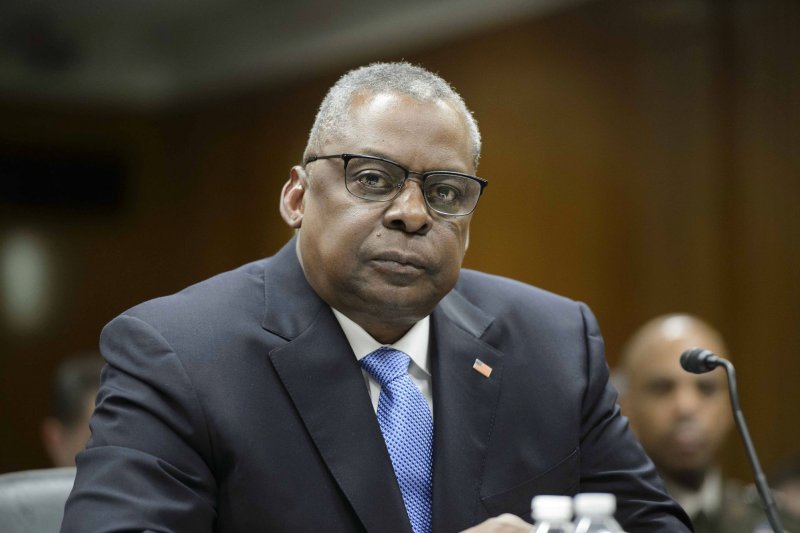U.S. Secretary of Defense Lloyd Austin spoke with Mozambique President Filipe Jacinto Nyusi Wednesday about security concerns in the country's Cabo Delgado province. Mozambique has been battling Islamic militants there since 2017. File Photo by Bonnie Cash/UPI |
License Photo
Aug. 2 (UPI) -- U.S. Defense Secretary Lloyd Austin spoke with Mozambican President Filipe Jacinto Nyusi Wednesday about what the Department of Defense called the "security situation" in Cabo Delgado Province.
It is a situation that has displaced more than a million people in the northern province of Mozambique since a deadly insurrection has gripped the region beginning in 2017.
According to a Pentagon readout of the call, the two men expressed dedication to deepening the U.S.-Mozambique defense and security relationship.
"The two leaders exchanged views on the situation in Cabo Delgado Province, Mozambique's role on the UN Security Council, and other regional issues of shared interest," the Pentagon readout said. "They also discussed priorities for the coming months, particularly related to implementation of the Global Fragility Act."
According to a report posted by the United Nations Office for the Coordination of Humanitarian Affairs, the violence in Cabo Delgado began in 2017 when armed men attacked police stations in the city of Mocimboa da Praia.
An armed group called Ahlu Sunna Wal Jama (ASWJ) conducted follow-up attacks. The group is known locally as Al-Shabaab but is distinct from the Somali group of the same name.
The report said "The Cabo Delgado conflict has its roots in the pre-existing socioeconomic marginalization of northern Mozambique, political and religious ideology, and inequalities worsened by the discovery of minerals and natural gas deposits in the region, which has threatened the livelihood of the local population. Besides the ideology of the ASWJ/Al-Shabaab, poverty and marginalization are also facilitating the armed group's recruitment in the region."
An Islamic State-affiliated terrorist group in Mozambique was sanctioned by the EU in April. More than a million people have been displaced by violence in Cabo Delgado, a northern province of Mozambique.
The EU said its decision to sanction the ISIS-affilated group in Mozambique was to counter "the continued terrorist threat posed by Al-Qaida, ISIL/Da'esh and their regional affiliates."
Mozambique has been struggling against the militants in Cabo Delgado for years and has the help of troops from Rwanda and other African nations.
Mozambique is collaborating with regional and international allies, including the Southern African Development Community's Mission in Mozambique, a peacekeeping mission that deployed 3,000 troops to counter the Islamic group.
In 2021 U.N. Secretary-General Antonio Guterres said he was shocked by beheadings and kidnapping of women and children during the Cabo Delgado violence.















